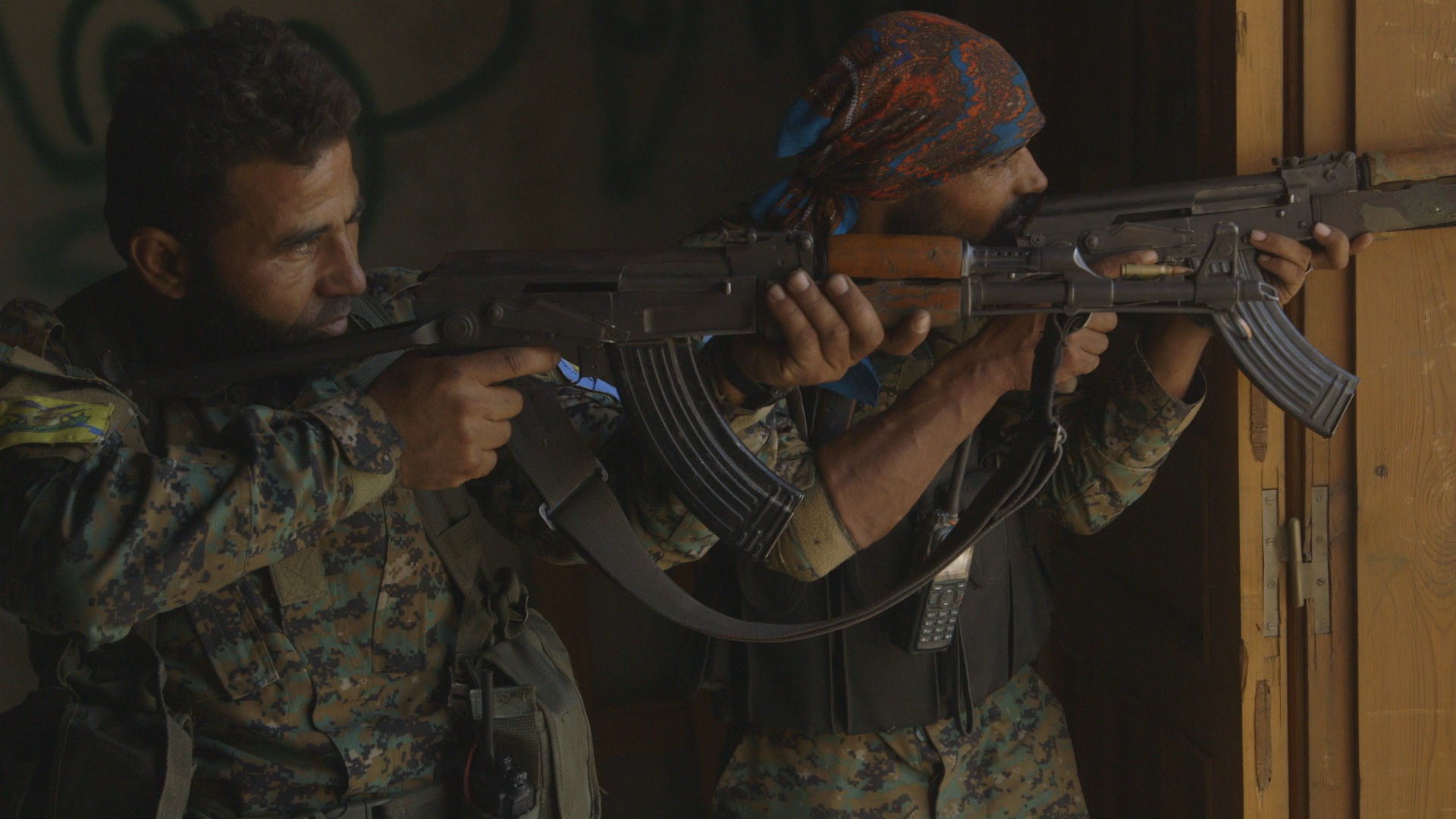The Other Power Brokers
A U.S. service member watches as Syrian Democratic Forces remove military fortifications during the implementation of the security mechanism along the Turkey-Syria border in northeast Syria, Aug. 22, 2019. (U.S. Army photo by Spc. Alec Dionne)
The Humanitarian Disaster
The ISIS Threat
In this March 31, 2019 file, photo, women speak to guards at the gate that closes off the section for foreign families who lived in the Islamic State's so-called caliphate, at Al-Hol camp in Hasakeh province, Syria. The IS could get a new injection of life if conflict erupts between the Kurds and Turkey in northeast Syria as the U.S. pulls its troops back from the area. The White House has said Turkey will take over responsibility for the thousands of IS fighters captured during the long campaign that defeated the militants in Syria. But it’s not clear how that could happen. (AP Photo/Maya Alleruzzo, File)
The Chaos To Come
